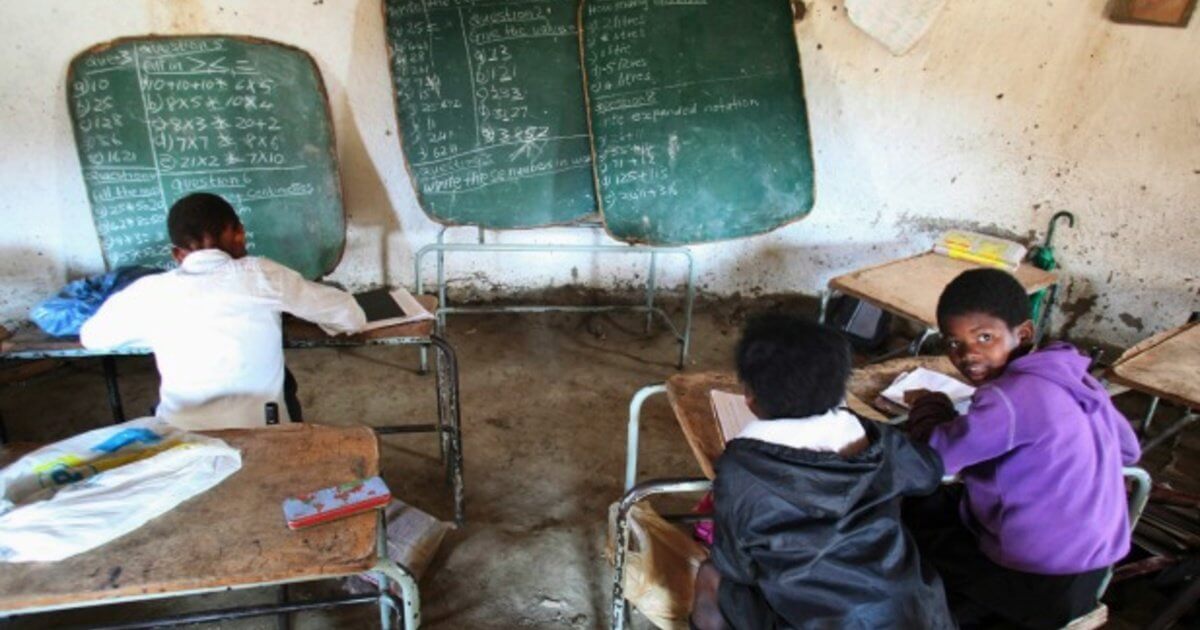Education is one of the sectors taken for granted by African governments, probably because the elite get quality education abroad. PELUMI BOLAWA writes on non-governmental bodies that have taken it upon themselves to promote the sector in Africa
Human Capital Africa, on Tuesday, October 26, 2021, officially launched its operations as an advocacy group in Sub-Saharan Africa, spear-headed by Nigeria’s former Minister of Education, Obiageli Ezekwesili. HCA came to address the challenge of children denied quality education across the region – to improve foundational literacy and numeracy for them.
With this initiative, SSA is on the path to achieving quality education, improved productivity and innovation.
One of the heavy challenges that ravage Africa is high rate of poverty, lack of innovative skills and education, injustice and inequality. Amid these problems, education and entrepreneurship have been tagged as the path to Africa’s development.
Governor Godwin Obaseki of Edo State explained the ineffectiveness of same strategy being deployed by African leaders to develop the continent.
Leaders from our continent must realise that, rather than focus on mineral resources, we should focus on the most abundant resources that we have, which is our human capital, and use this as a springboard to drive far-reaching, deep-rooted sustainable development that ensures greater spread of prosperity.
“For decades, Africa and the developing world have anchored their development programmes on exploiting mineral resources, hoping that they would deploy the proceeds of these resources to drive their economic prosperity. This model has not worked,” the governor said.
What currently plays out?
Africa is the second largest continent in the world in terms of population, yet with its large number of human capacity, a data still suggested that by 2030, 90 per cent of poor people in the world would be from the continent.
Another report reveals that over 100,000 children are born in SSA each day. Of this number, 90,000 currently are not able to read a simple sentence by the age of 10 or 11, thus debarred from having the necessary technical education.
“Unfortunately, every day, we find new ways to let all hundred thousand of them down – by denying them the opportunities they need to build the right levels of human capital necessary to thrive in the world today. Perhaps, most critical of our failures in building this necessary human capital is our inability to ensure that all our children receive high quality education, Ezekwesili stated while speaking at the HCA launch.
In building human capacity, proper education that is beyond going to class must be embraced, which results in building the entrepreneurship capacity of every child. According to the United Nations, young people in our country under 25 years of age make up over 60 per cent of the 200 million people in Nigeria.
Every year, about 11 million young people go into the labour market that only provides for about three million jobs. This dichotomy keeps widening across Africa, especially in the Sub-Saharan part.
A Nigerian researcher and writer, Sherriff Tahiru, said, “While many of the problems in Nigeria often seem louder and more prominent in the national spotlight, endemic corruption in Nigeria’s education system does equally insidious damage to the country. At the most fundamental, corruption in Nigeria’s education sector deeply threatens the well-being of the country by sabotaging the growth of educated, competent and ethical individuals to fill the country’s labour force, for future leadership.
Lack of political will and others
According to Ezekwesili, people continue to complain about lack of political will, “because that exactly is the point. We seem to lack the will to fix the problem ravaging our children.”
A public analyst, Dejo Abdullahi, submitted that the challenges facing education system in Nigeria are diverse, ranging from poor infrastructure to industrial unrest, cultism, exam malpractice, corruption and maladministration.
“The sector is in a bad state, and there is no other reason than lack of political will by the government to do the needful in revamping the sector,” he added.
Way out
Experts have suggested that building foundational education/literacy will go a long way in revamping education in Nigeria.
According to Tahiru, the question is how to build foundational structures to support a functional school system in Nigeria. However, the answer is found in understanding where the fundamental issues lie. Failing educational systems are tied to other systems: political, economic and social conditions.
HCA emphasises gaining foundational literacy skills as critical to progress in schools, learning other subjects, participating in technical education and eventually becoming a productive member of the society’s workforce.
Another way out, as provided by the founder of Konga and ULesson, Sim Shagaya, is policy stability.
In the same vein, Ezekwesili blamed Nigerians’ inactivity to government’s decisions when policies are totally overturned as political power changes hands. “Citizens must be actively engaged in the governance process.”
Entrepreneurship and education
In creating jobs, entrepreneurship has been identified as a notable channel outside the typical formal system. It has been seen as the solution to the problem of unemployment in Africa.
Technology, on one hand, is becoming the new wave; hence education entrepreneurs must also look inwards into harnessing the different opportunities that this tech age offers.
Expressing his passion for education, Shagaya stated, “Education is something I am interested in – to use technology to do something, create high quality learning.
Established in 2019, in Jos, Plateau state, ULesson targets secondary schools, especially West African Examination Council candidates. The platform runs on three major pillars: technology, media and academics.
“Technology is changing education in dynamic and positive ways. Students now have access to a wide range of tools that fundamentally change where, when and how they learn. Not all educational models embrace these innovations; so it is important to understand how exactly technology is changing education for the better, and whether it would be beneficial for your child. What we are really offering our partners is an opportunity to change Africa, one student at a time,” stated the founder of Brave Generation Academy, Tim Vieira.
Shola Akinlade and Ezra Olubi, co-founded Paystack, the first indigenous Nigerian online payment application. The two met during their undergraduate studies at Babcock University, Nigeria, and eventually made the payment solution a reality after graduating.
Need for systemic overhauling
According to HCA, the major challenge of the education system across SSA goes beyond funding, but is rooted in system issues. “If you fund dysfunctionality, you only make it a well-funded dysfunctionality,” she explained.
One of the beneficiaries of FFE, Oluwasegun Adesanya, said the platform exposed him to a higher level of education. “It made me acquire more knowledge through brainstorming and collaboration with people from different fields, backgrounds and beliefs.”
Other organisations like FFE are determined in their activities to help youths become job creators for themselves and others as entrepreneurs, to get jobs and keep jobs, to make healthy financial decisions from when they earn money to what they do with it afterwards.
“When we partner with entrepreneurs and their ventures, our investment strategy goes beyond simply offering financial support,” Adesanya added.
According to him, a nation that wants to grow and develop must invest in education.
Expenditure on education is a great investment, which will have a major impact on human capital, having the right skills to work and produce efficient result.
His words, “However, education is not limited to the four walls of a classroom; that is where entrepreneurship comes in. Using Nigeria as a case study, I feel the education sector in Nigeria is lagging behind in terms of the teaching methods. Real life examples should be used to solve technical problems. Most of what is being taught is not impactful.
“Education will help raise people’s productivity level and creativity that will give rise to entrepreneurship development and technological advancement.”
The solutions Adesanya provided included investment in technology, as well as training for teachers and more government spending on education. He added, however, that accountability should be in place.
Education policy that integrates everyone, not leaving room for inequality, curriculum reviews, partnership for skill acquisitions and parental involvement.
Embracing partnership
Like HCA, there are numerous platforms that are committed to funding education entrepreneurs across Africa.
FutureFundforEducation, on its path to achieving quality education, is dedicated to solutions that are Africa-centric by creating partnership with experts across Africa. With the organisation’s expertise in entrepreneurship and education, it is creating an improved environment for innovative solutions.
HCA founder Ezekwesili, recounted the need for collaborative effort between the players within the educational ecosystem, including education entrepreneurs.
“HCA will work to foster collaboration and cooperation across public and private sector leadership with civil society and the public to move human capita, starting with fixing Foundational Literacy and Numeracy, to the centre of Africa’s development strategy,” according to its official statement.
In the words of the former President of Malawi, Joyce Banda, “Africa is not poorer it’s the people that are poor.”
Get real time update about this post categories directly on your device, subscribe now.



